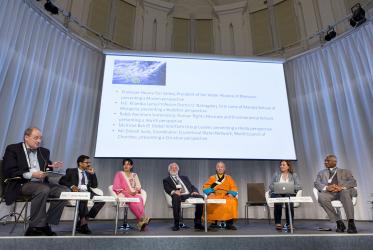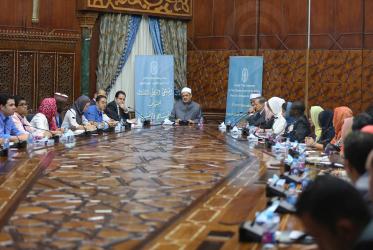Displaying 141 - 160 of 362
Post-Reformation unity commended in Vatican City
08 November 2016
Grand Imam calls for collaboration against violence and poverty
06 October 2016
Tveit offers input at religion and development meeting
03 October 2016
WCC holds discussion on religious freedom literacy and diplomacy
23 September 2016
Religious leaders of many faiths talk peace in Assisi
21 September 2016
WCC general secretary reflects on peace in Palestine and Israel
20 September 2016
WCC set to observe World Week for Peace in Palestine and Israel
16 September 2016
Seminar will address youth engagement, religion and violence
19 August 2016
Facilitating peace with passion
26 July 2016
In Ghana, women bring open minds, honest words
05 July 2016









